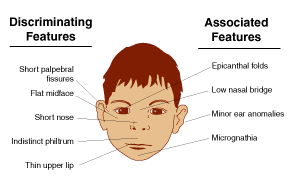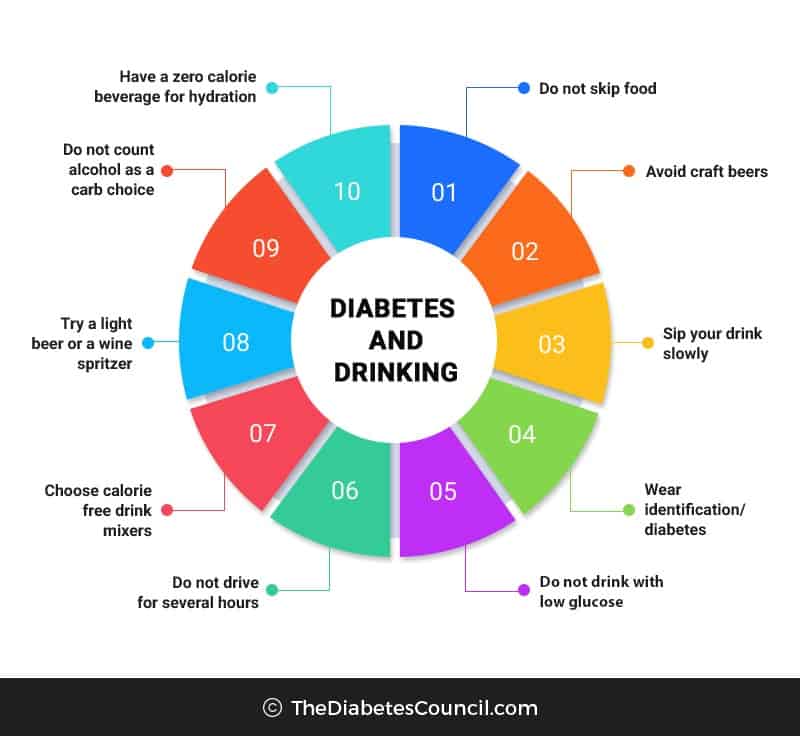Fetal alcohol spectrum disorders FASDs are a group of conditions that can occur in a person whose mother drank alcohol during pregnancy. A head thats smaller than average.
 What Are The Facial Characteristics Of Fetal Alcohol Syndrome Pediatriceducation Org
What Are The Facial Characteristics Of Fetal Alcohol Syndrome Pediatriceducation Org
From memory and learning issues cerebral palsy and autism to physical development issues and a failure to develop normal social skills there are a variety of symptoms that every mother should shield her baby from.

Fetal alcohol syndrome features. Vision or hearing problems. Fetal alcohol syndrome can have many symptoms including. 1 characteristic facial anomalies see image below 2 growth retardation intrauterine growth.
These are secondary conditions that an individual is not born with but that he or she might acquire as a result of fetal alcohol syndrome or other fetal alcohol spectrum disorders. Unusual facial feature such as small eye thinner upper lips upturned nose smooth skin between upper lips and nose etc Joint deformities deformed fingers and limbs Delayed physical growth during pregnancy and after birth. FAS occurs as a result of prenatal exposure to alcohol.
The 3 Diagnostic Facial Features of FAS All three must be present Examples of the full Rank 4 FAS facial phenotype across race and age A Caucasian B Caucasian infant C African American D Asian E Hispanic F Native American. Fetal Alcohol Syndrome FAS. The diagnosis of fetal alcohol syndrome FAS is based on findings in the following 3 areas.
Characteristics of Fetal Alcohol Syndrome Some of the common fetal alcohol syndrome characteristics include abnormal facial features growth deficiency and central nervous system problems. Joint limb and finger. Over time children with fetal alcohol syndrome are at risk for psychiatric problems criminal behavior unemployment and incomplete education.
Foetal alcohol syndrome is a type of foetal alcohol spectrum disorder FASD the name for all the various problems that can affect children if their mother drinks alcohol in pregnancy. FAS represents the severe end of the FASD. Abnormal facial features particularly a smooth ridge between the nose and upper lip.
Symptoms of foetal alcohol syndrome. Some common symptoms of Fetal Alcohol Syndrome may include. People with FAS can display any number of the following symptoms.
Physical defects Distinctive facial features including small eyes an exceptionally thin upper lip a short upturned nose and a smooth skin surface between the nose and upper lip. The severity of these symptoms ranges from mild to severe and can include. Fetal alcohol syndrome includes the most severe signs that develop as a result of alcohol exposure during pregnancy.
Over time children with the condition are at risk for psychiatric problems criminal behavior unemployment and incomplete education. People with FAS might have abnormal facial features growth problems and central nervous system CNS problems. Dysmorphic Facial Features of Fetal Alcohol Spectrum Disorders FASDs Minor abnormalities dysmorphia of facial features are very important clues to brain structure and function.
Fetal alcohol syndrome FAS is the most clinically recognizable form of FASD and is characterized by a pattern of minor facial anomalies prenatal and postnatal growth retardation and functional. Poor social skills including getting along with others may indicate FAS. Fetal Alcohol Syndrome FAS is a set of mental and physical disorders that can include mental retardation brain dysfunction physical abnormalities learning disabilities and psychological disorders.
Fetal Alcohol Syndrome Characteristics FAS causes a diverse set of problems ranging from a distinctive facial appearance growth and developmental delays to mental retardation and behavioral problems. They provide an outward sign on brain formation and development in gestation. Fetal death is the most extreme outcome from drinking alcohol during pregnancy.
Fetal Alcohol Syndrome FAS is at the most severe end of the FASD spectrum. Signs and symptoms of fetal alcohol syndrome may include any mix of physical defects intellectual or cognitive disabilities and problems functioning and coping with daily life. Fetal Alcohol Syndrome Symptoms.
Since fetal alcohol syndrome covers a wide range of problems there are many possible symptoms. Symptoms can include an abnormal appearance short height low body weight small head size poor coordination low intelligence behavior problems learning difficulties and problems with hearing or sight. It should be noted that the severity of physical mental and even behavioral defects differ from one child to another.
Small head and brain size. Fetal Alcohol Syndrome can also manifest itself in social and behavioral issues. From poor social skills to problems with impulse control noticing these behavioral markers may help you identify FAS and get your child a diagnosis and medical treatment.
If you have type 2 diabetes thats probably OK as. However avoiding alcohol in large quantities is the best recourse.
 Effects Of Alcohol On Diabetes
Effects Of Alcohol On Diabetes
Excessive alcohol consumption increases your risk of developing a chronic inflammation of the pancreas called pancreatitis.

Does alcohol cause type 2 diabetes. Alcohol might not cause diabetes on its own but it can play a role. Alcohol can cause hypoglycemia Within a few minutes of drinking alcohol and for up to 12 hours afterward alcohol can cause your blood glucose level to drop. Drinking lots of alcohol is dangerous for anyone.
Alcohol is a potential risk factor of Type 2 diabetes. The role alcohol plays in developing diabetes is controversial and studies have had inconsistent conclusions on the topic. An analysis of 20 longitudinal cohort studies looked at alcohol and type 2 diabetes risk.
Alcoholism and heavy drinking can cause type 2 diabetes. Take a look at our information about risk factors and find out your risk of developing type 2 diabetes. Alcoholism and diabetes type 2 can be a very dangerous combination.
However with larger amounts of alcohol serious hypoglycaemia can occur. However more detailed information on effects of alcohol types and early phases of Type 2 diabetes development seems warranted. Excess alcohol intake is associated with an increased risk of type 2 diabetes but the relationship between alcohol and risk of type 2 diabetes can be a little bit complicated and staying within government guidelines is the safest way to drink alcohol.
The aim of this study was to investigate the influence of alcohol consumption and specific alcoholic beverages on the risk of developing pre-diabetes and Type 2 diabetes in middle-aged Swedish men and women. Can I Drink if I Have Diabetes. In recent years increasing attention has been paid to the role of alcohol in the etiology of type 2 diabetes.
The lowest risk was among both men and women who had an average of about two drinks per day. After consuming alcohol always check. Diabetes can be a vicious disease.
Yes alcohol and tobacco use may increase the risk of type 2 diabetes. And it does so greatly. Drinking alcohol can contribute to the conditions that cause diabetes.
Plus alcohol has a lot of calories. Additionally for people who already have either type of diabetestype 1 or type 2heavy alcohol consumption can worsen the disease. Almost 90 of people living with type 2 diabetes are overweight or obese.
If you have diabetes drinking alcohol may cause your blood sugar to either rise or fall. To help keep. Think of type 2 diabetes and you probably think of obesity.
Alcohol Although studies show that drinking moderate amounts of alcohol may actually lower the risk of diabetes the opposite is true for people who drink greater amounts of alcohol. And it is true excess weight is the biggest risk factor for type 2 diabetes. Blood sugar levels can also drop to unhealthy levels which can cause a host of.
5 One of the consequences of pancreatitis is an impaired ability of the pancreas to secrete insulin which can potentially lead to type-2 diabetes. A number of studies have investigated this issue but with contradictory results. Type 2 diabetes is typically characterised by rampant blood sugar levels which tend to rise if left untreated.
Type 2 diabetes is one of the most common chronic diseases prevalent in the world Unmoderated alcohol consumption can lead to addiction also known as alcoholism Alcohol can affect the body and several of its functions both adversely and positively. Heavy drinking can reduce the bodys sensitivity to insulin which can trigger type 2 diabetes 7. Effects of Alcohol on Type 2 Diabetes For people with type 2 diabetes isolated episodes of drinking alcohol over the short term may slightly increase insulin production which in turn lowers blood sugar.
There was a clear U-shaped curve between drinking alcohol and type 2 diabetes risk. On the other hand binge drinking and high alcohol consumption may increase the risk of type 2 diabetes in women. If you drink do it occasionally and only when your diabetes and blood.
There are three main ways drinking alcohol to excess can be a factor in causing diabetes. Alcohol can also contain a lot of calories which can lead to putting on weight. At its worst it can lead to amputations blindness organ failure and e.
According to the Mayo Clinic excessive alcohol consumption can increase a persons risk of developing type 2 diabetes. Some sources including Diabetes UK advise strict carbohydrate management perhaps even chips or pizza if a large amount of alcohol has been consumed. Alcohol reduces the risk of diabetes.
Government guidelines on alcohol units. Alcohol can worsen diabetes-related nerve damageRON CHAPPLE STOCKCORBISHoping for a beer at the ball game or a glass of wine with dinner. Some data have shown that modest amounts of alcohol may lower the risk of Type 2 diabetes while high amounts of alcohol may increase the risk.
4 This condition leads to irreversible damage that includes destruction of v-cells the specialized cells in the pancreas responsible for the production storage and release of insulin. When women consume more than one drink per day or when men consume more than two drinks per day the pancreas may become inflamed.
You may need to limit the amount of alcohol the person drinks. Heavy drinking and dementia However heavy drinking is more robustly linked to an increased risk of dementia.
 Alcohol And Dementia What S The Truth Bbc News
Alcohol And Dementia What S The Truth Bbc News
This appears to be for a number of reasons.

Dementia and drinking alcohol. Alcohol consumption is linked to loss of brain volume in midlife which may increase the risk of dementia. This includes Alzheimers disease. Alcohol-related dementia is most likely to occur in those with several years of heavy drinking defined as more than 35 standard drinks for men per week and 28 for women for five years or more Rao explains.
This is because of the damage to their brain caused by regularly drinking too much alcohol over many years. If a person has alcohol-related dementia they will struggle with day-to-day tasks. A person with dementia may drink too much alcohol because theyve forgotten how much theyve had.
The alcohol can be beer wine or spirits. People with dementia can become more confused after they drink alcohol. Unlike some forms off dementia it will not get worse if the person stops drinking alcohol.
Alcohol-related dementia ARD is a form of dementia caused by long-term excessive consumption of alcoholic beverages resulting in neurological damage and impaired cognitive function. Medical research has shown that moderate drinking reduces the risk of dementia. Alcohol Consumption after Dementia An English study examined people who already had dementia and found that alcohol consumption increased the likelihood of their decline.
Alcohol-related dementia is a type of alcohol-related brain damage ARBD. Among Germans aged 75 and older those who drank two to. Research shows that heavy drinking can increase the risk of developing dementia.
Its not easy coping when parents with dementia continue drinking. No evidence that the relation between alcohol and dementia varied by type of alcoholic beverage was found. However abstaining from alcohol increases the risk of cognitive decline.
Alcoholism plus dementia causes faster decline in skills needed to function independently worsens behavioral problems and raises safety concerns for the person with dementia and the people caring for them. Drinking Too Much Alcohol May Increase Dementia Risk Researchers say drinking is the number one preventable risk for dementia. Light-to-moderate drinking one to three drinks per day was significantly associated with a lower risk of any dementia hazard ratio 058 95 CI 038-090 and vascular dementia hazard ratio 029 009-093.
Further issues linked to alcohol facing a person with dementia include the risk of dehydration or alcohol limiting the effectiveness of their dementia drugs. Recent research from France found that people who were dependent on alcohol or had a health issue caused by regular heavy drinking were three times more likely to develop dementia than other. There is an alternative used by many though.
The person may have memory loss and difficulty thinking things through. Excessive drinking over a period of years may lead to a condition known as alcoholic dementia formally described as alcohol-induced major neurocognitive disorder in the DSM 5 which can cause problems with memory learning and other cognitive skills. Alcohol has a diuretic effect on the body causing a person to urinate more often and therefore placing them at risk of dehydration.
If this happens or if you think they are drinking inappropriately you could keep alcohol out of sight. Alcohol abuse is toxic to the brain and can damage memory. 2 2004 -- Drinking alcohol in middle age may increase the risk of late-life dementia in people who are genetically predisposed to develop Alzheimers disease according to findings from a.
It has also been shown to accelerate vascular brain. An earlier study concluded that alcohol consumption increases the risk of dementia and that people with the APOE E4 variant have a higher chance of developing dementia. Firstly when alcohol is broken down in the.
Researchers found that older adults who engaged in binge drinking once per month were 62 percent more likely to experience declines in cognitive function while 27 percent experienced the greatest declines in cognitive function. When someone with a history of alcohol abuse develops Alzheimers or dementia it can become a very challenging situation for families to manage. Alcohol and dementia are strictly related in this case because too much alcohol prevents normal neurological functioning which leads to dementia a serious brain condition that can affect people of all ages who abuse alcohol.
However theres conflicting research on how much alcohol is too much. March 2 2011 -- Drinking a moderate amount of alcohol may protect against dementia according to a new study in the journal Age and Ageing. Another unknown is how.